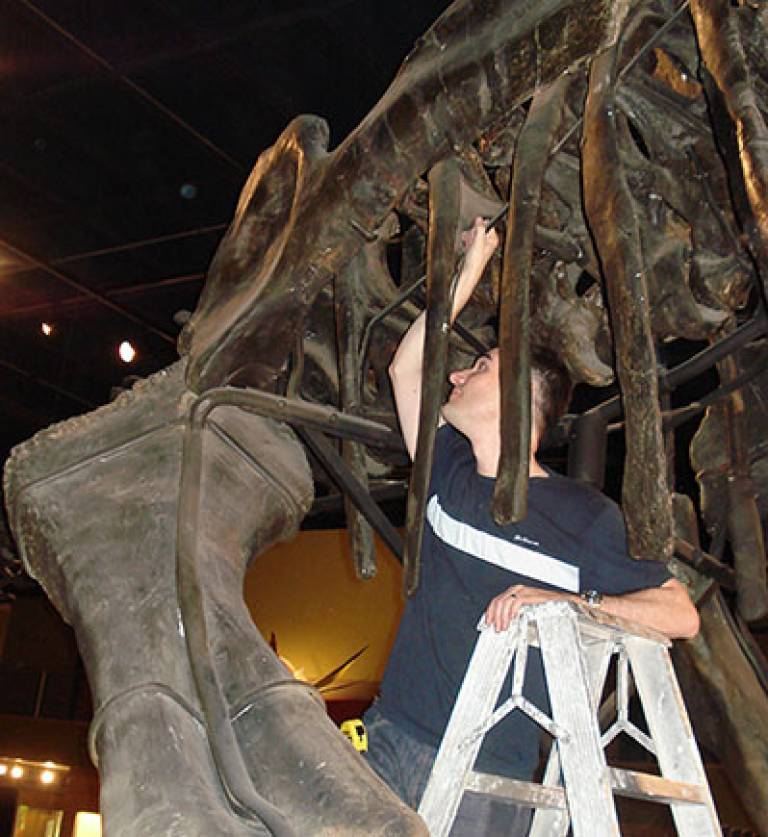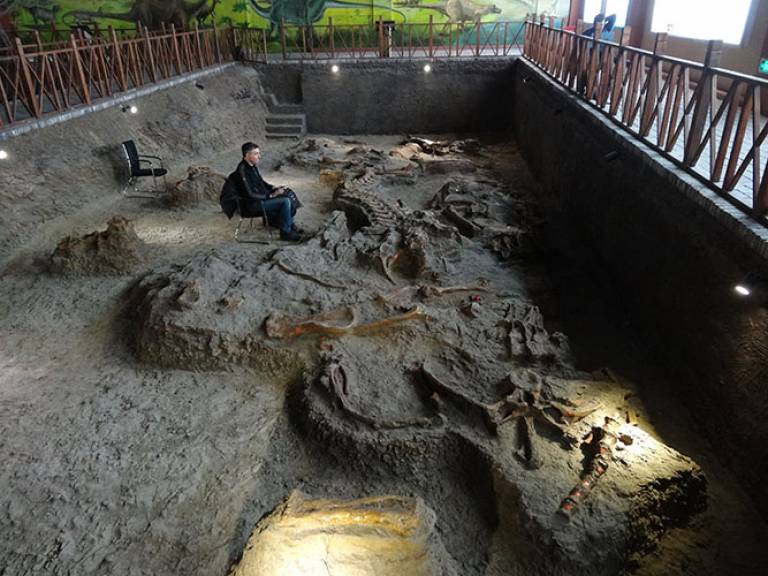Looking out for visual impairments.
2 December 2022
Representation and discrimination of those with mobility and sensory impairments is a serious problem in academia. Non-disabled academics must fight prejudice and increase the support to, and visibility of, physically impaired colleagues, states Prof Paul Upchurch.

In this short article, I briefly outline my lived experience as an academic with a severe visual impairment, and comment on the barriers we face and some actions that could be taken to remove them. The Earth sciences is a very varied field, and many of its aspects are challenging to those with physical disabilities. Not only has fieldwork being traditionally a key part of earth sciences teaching and research, but many aspects of data collection and interpretation are challenging for those with visual impairments. Even when research activities are possible, I have found that progress is often slower.
People with disabilities are underrepresented in academia generally, and particularly STEM subjects. It is difficult to get a precise handle on the degree of underrepresentation, partly because recent work has shown that members of staff with disabilities are often reluctant to report this to their employers, even though this might actually result in increased support and appropriate adjustments to working conditions. For example, just over 20% of US citizens are recognised as having a disability, but only 4% of US academics have a disability. Similarly, in the UK, around 12 to 15% of undergraduate and postgraduate students declare a disability, but this tends to be in the range of one to 3% for university staff. Clearly, there is much more work still to be done to increase representation.

So, what can we all do to help? This is a complex problem that realistically requires initiatives by government, funding bodies, universities, and ultimately individuals. Allies are key, and training to increase awareness of the abilities of people with disabilities and the benefits they bring to organisations is important. We should perhaps consider ways in which some research funding Canby ring fenced for underrepresented groups, and schemes that compensate people who have taken time away from their research careers in order to work on aspects of equality, diversity, and inclusion, would also be helpful – some organisations are beginning to think along these lines. For me, attitudes are starting to shift and organisations are starting to move in the right direction – but progress is slow and it still remains highly unusual for me to meet another academic in my field who has any kind of physical disability.
Links:
- Prof Paul Upchurch academic's profile
- Upchurch, P. Looking out for visual impairments. Nat Rev Earth Environ 3, 807–808 (2022).
 Close
Close

